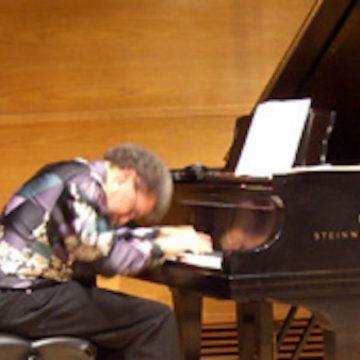Thomas Larson in the Los Angeles Review of Books:
 ANTHONY DAVIS, winner of the 2020 Pulitzer Prize in Music for his opera The Central Park Five, is a composer with a great future behind him. Five is his eighth opera, and during those labors, spanning four decades, he’s found the time and talent to write orchestral pieces and music for plays, to record solo piano albums, to gig widely, and to make records with his group, Episteme. Under the microscope, Davis, who is 68 and a professor at the University of California at San Diego, reveals a rare strain of the American composer’s DNA, a synthesis of the diasporic music of African descendants and the uncompromising voice of contemporary opera.
ANTHONY DAVIS, winner of the 2020 Pulitzer Prize in Music for his opera The Central Park Five, is a composer with a great future behind him. Five is his eighth opera, and during those labors, spanning four decades, he’s found the time and talent to write orchestral pieces and music for plays, to record solo piano albums, to gig widely, and to make records with his group, Episteme. Under the microscope, Davis, who is 68 and a professor at the University of California at San Diego, reveals a rare strain of the American composer’s DNA, a synthesis of the diasporic music of African descendants and the uncompromising voice of contemporary opera.
Fresh out of Yale and into New York City in 1977, Davis began to explore and reimagine jazz and composition, which he simmered with themes of social justice, à la his equally subversive forefather, Charles Mingus. Another primal influence was the Chicago-based Association for the Advancement of Creative Musicians — havoc specialists, with roots in the 1960s, for whom live improvisation has been the gold standard. Yet Davis dislikes the “jazz” label. He prefers what he calls “a plurality of traditions,” an eclectic assortment of mentors from Wagner to Thelonious Monk, Stravinsky to Anthony Braxton.
More here.
